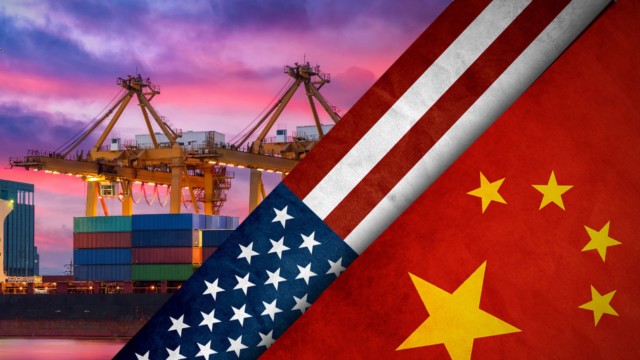Washington – At one minute past midnight on Friday the United States imposed tariffs on 34 billion dollars’ worth of Chinese goods. China promptly responded with matching tariffs on U.S. goods.
“This wrong action of the U.S. is in blatant violation of the rules of the World Trade Organization. It will disturb the global trade order, cause turbulence on the global market, and hamper world economic recovery,” said Lu Kang, spokesman for the Chinese Foreign Ministry.
Beijing has repeatedly condemned protectionism while vowing to respond forcefully to U.S. tariffs. Beijing has filed a complaint over the U.S. tariffs with the World Trade Organization.
“When China is unfairly treated in terms of its legitimate rights and interests, it is completely justified for us to take necessary countermeasures. As a Commerce Ministry spokesman announced earlier today, we will report relevant situation to the WTO in a timely manner. We are determined to work with other countries in the world to protect free trade and multilateral trade system,” said Lu.
The U.S. tariffs avoid direct consumer goods and instead apply to items like manufacturing equipment, pumps, turbines and electrical components.
The Chinese tariffs hit items including soybeans, aircraft, cars and computer chips. They will have their biggest impact in the industrial Midwest and other agricultural regions in the U.S.—places where U.S. President Donald Trump has strong political support.
Speaking at a campaign style rally in the U.S. state of Montana hours before the tariffs took effect, President Trump defended the tariffs.
“I respect China, and I respect President Xi. But they’ve been killing us…. Then you want to do something about it and you get attacked. Oh that’s not nice. That’s not free trade. The war was lost on trade many years ago. You know when they’re saying, not a free trader, I said no. The war was lost, but now we’re going to win it and because we have all the cards,” Trump said.
U.S. Senator and former Vice Presidential candidate Tim Kaine, tweeted “Who is the war against? American farmers and workers.”
That sentiment is echoing throughout the U.S. business community. American companies – large and small – say a trade war will drive up consumer prices, cost U.S. jobs and make American companies less competitive.
 CGTN America
CGTN America

